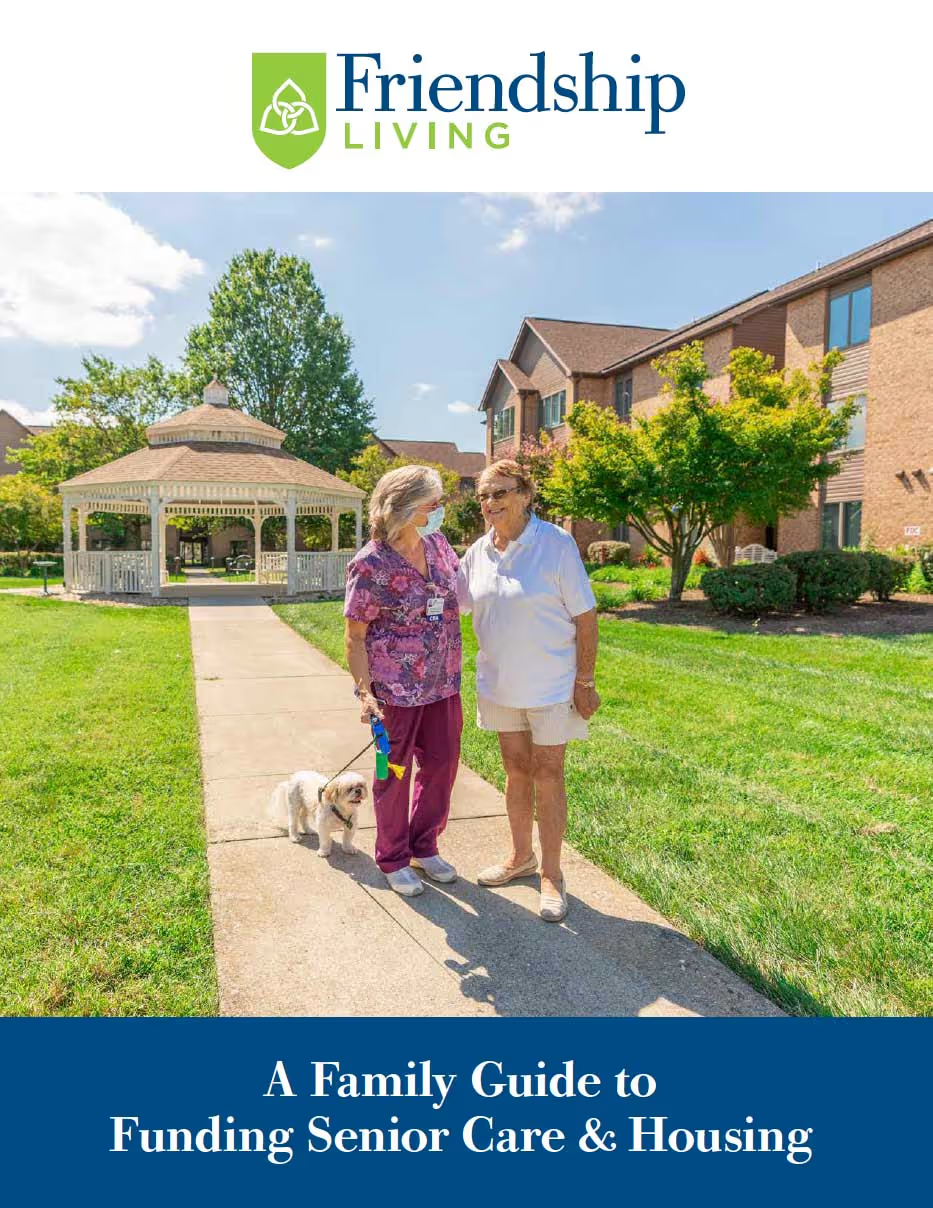
Money Matters: 5 Tips to Help in Paying for Senior Living

One of the biggest concerns for families when considering senior living is how they will pay for it. There’s no question that the benefits of senior living – comfort, care, convenience, and connection, just to start - add a value that outweighs the costs. However, if there is a gap between what your budget will allow and the monthly cost of the community, that doesn’t mean you are out of luck. There are a number of options to help in paying for senior living. Check out our top 5 tips.
1. Veterans Aid & Attendance Benefit
Aid & Attendance is all too often overlooked, but it can be extremely helpful for eligible wartime veterans or their surviving spouse to receive this non-service-connected benefit in paying for senior living. The benefit starts with the basic pension and, depending on medical need, gives you or your loved one a rating that could add more money to your monthly pension. However, the military service criteria as well as the medical requirement AND the financial requirement must all be met to qualify.
2. Long-Term Care (LTC) Insurance
LTC insurance can help in paying for senior living by covering care services that are typically not covered by health insurance, Medicare, or Medicaid. LTC policies typically begin to pay benefits after an assessment has determined that you or your loved one need help with two or more Activities of Daily Living or has cognitive impairments (known as a benefit trigger). Keep in mind that it is typically necessary to be in good health to qualify for LTC and the older you are when you purchase the policy, the more expensive the premium might be.
3. Life Insurance Conversion
Many people don’t realize that in-force life insurance policies can typically be transformed into a pre-funded financial account that disburses a monthly benefit to help in paying for senior living. Unlike life insurance, this account is a Medicaid-qualified asset. The conversion process simply transfers ownership of the policy from the original holder to an entity that acts as a benefits administrator. Because the original owner no longer holds the policy, it won't count against you or your loved one in the Medicaid spend-down process.
4. Reverse Mortgage
A reverse mortgage is a type of home equity loan specifically for homeowners aged 62 or older. It may make sense if you or your loved one would like to access the equity in your home in order to supplement income to help in paying for senior living. Keep in mind, however, the loan will need to be repaid when the borrower dies, sells the home, or permanently moves out. You may be eligible if, in addition to age, the home is a primary residence and equity, as well as financial requirements, are met. If so, the lender will make payments to you based on a percentage of your accumulated equity.
5. Your Current Assets as Collateral
Often families have more resources to help in paying for senior living than they realize. You or your loved one might consider selling or renting your home and using that income towards monthly senior living expenses, for example. Also look at the savings, stocks, bonds, and/or annuities that you have available. And don’t forget to include income such as Social Security or a pension in your budget. Any or all of these can help.
For more information about senior living and to schedule a visit, contact Friendship today.

